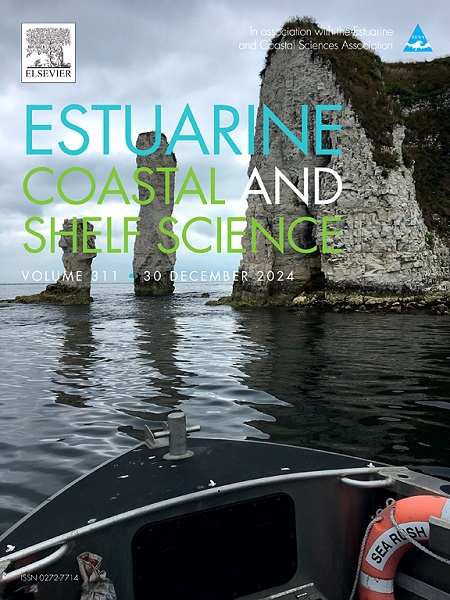Characterization of copepod ingestion rates in the Humboldt Archipelago and implications for a biogeochemical model in the Coquimbo upwelling system
IF 2.6
3区 地球科学
Q1 MARINE & FRESHWATER BIOLOGY
引用次数: 0
Abstract
Copepod ingestion rates (IR) have not yet been addressed in the upwelling system of Coquimbo (30°S), despite their critical role in linking the region's high primary productivity to upper trophic levels and biodiversity within the Humboldt Archipelago. Given its natural variability and influence on mesozooplankton biomass, IR represents a challenging step during the parameterization of biogeochemical models employed to understand and predict the productivity of marine ecosystems. This has led to a reliance on simplified and imported information that does not necessarily represent the local environmental-ecological context, significantly influencing the uncertainty of the current generation of Earth system models. In the upwelling system of Coquimbo, the ENSO-Climate change and Carbon Cycle in the Pacific Southeast (ECLIPSE) project is parameterizing a coupled Biogeochemical model for Eastern Boundary Upwelling Systems (BioEBUS) since 2022. Thus, in addition to characterizing the IR of the copepods, the research effort aims to understand the relationship between the El Niño Southern Oscillation (ENSO) and oxygen/CO2 fluxes in the sub-tropical upwelling regions of the HCS. To constrain BioEBUS outputs, in this study we report the results of grazing experiments conducted in the system throughout the 2023–2024 seasonal cycle, with different copepod species under food resources varying between 18 and 30 mg Chl m−2 and 1–7 g C m−2. The IR of Calanus chilensis (copepodite V and adult females), Calanoides patagoniensis, Metridia lucens and Paracalanus cf. indicus varied between 2 and 63 μg C ind−1 d−1, maximum IR was 1.6 d−1, while the IR of the corresponding size class reached 300 g C m−2 d−1. These results may alert the modeling community to reconsider parameterization information regarding mesozooplankton grazing rates.
求助全文
约1分钟内获得全文
求助全文
来源期刊
CiteScore
5.60
自引率
7.10%
发文量
374
审稿时长
9 months
期刊介绍:
Estuarine, Coastal and Shelf Science is an international multidisciplinary journal devoted to the analysis of saline water phenomena ranging from the outer edge of the continental shelf to the upper limits of the tidal zone. The journal provides a unique forum, unifying the multidisciplinary approaches to the study of the oceanography of estuaries, coastal zones, and continental shelf seas. It features original research papers, review papers and short communications treating such disciplines as zoology, botany, geology, sedimentology, physical oceanography.

 求助内容:
求助内容: 应助结果提醒方式:
应助结果提醒方式:


